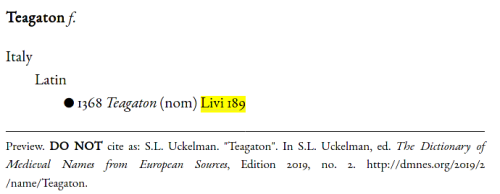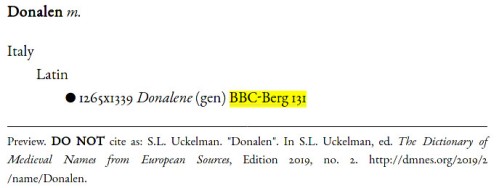Every Monday we will post an entry that hasn’t yet been published with a view towards harnessing the collective onomastic power of the internet. If you have any thoughts about the name’s origin, other variants it might be related to, other examples of its use, etc., please share them in the comments! If you wish to browse other Mystery Monday names, there is an index.
We figure the odds are pretty high that if you were presented with the name “Uideal”, you’d have no guess about it’s gender, language/culture, or time period; it is a remarkably peculiar little name.
To answer those questions exhausts what we know about this name: It’s the name of a man, recorded in a document written in Italy, in 827.
Early Italian names are remarkably recalcitrant to identify; often, they’re too late to show a clear connection with Latin vocabulary, but too early to reflect the influence of the Germanic naming practices. That’s exactly where this name falls: There’s nothing about it that gives us an “in” into understanding it.
Do you have any thoughts or suggestions? Have you seen this name — or something like it — before? Please share in the comments if you have!








